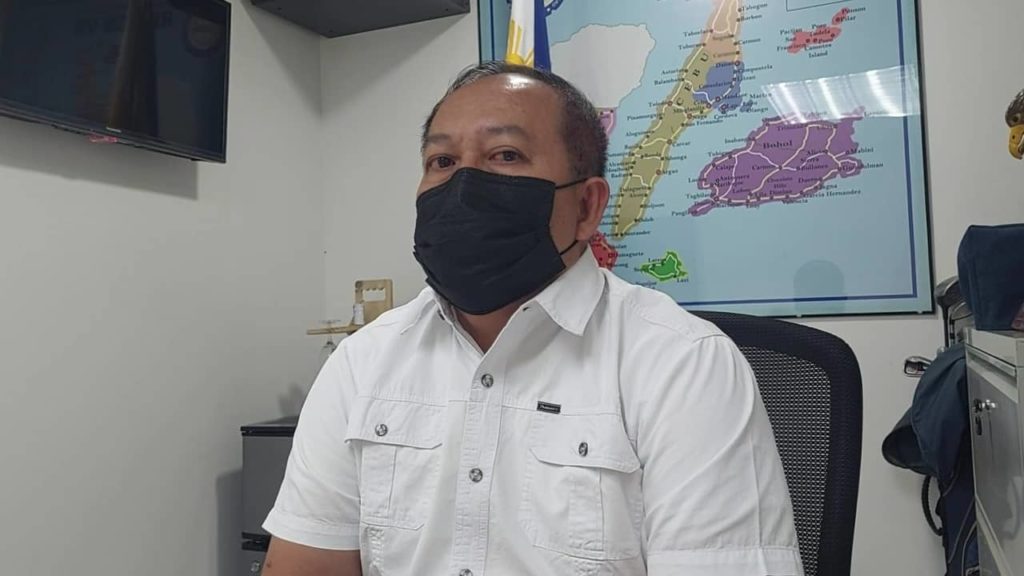
LTFRB-7 chief, Eduardo Montealto says transport cooperatives that are affected by Phase 1 of BRT project will be given the option to continue operations and service feeder routes or stop operations and receive a cash assistance. | Futch Anthony Inso
LAPU-LAPU CITY, Philippines — The Land Transportation Franchising and Regulatory Board in Central Visayas (LTFRB-7) is now identifying transport cooperatives that will be affected in phase 1 of the Bus Rapid Transit (BRT) project.
LTFRB-7 regional director Eduardo Montealto Jr. said that the construction of phase 1 of BRT is expected to start between August and September this year.
Phase 1 will include the construction of substations from the South Road Properties (SRP) to IT Park in Cebu City.
“Phase nato gikan from SRP going toward IT. Taas-taas na siya pero dili pa sad nako masulti kun pila ka substation ang ilang ibutang kay wala pa nako ma-review ang ilang kuan. Then duna ta’y ginagmay sa atong engineering design. Ang LTFRB man gud usa lang mi sa support agency, then kinahanglan pa sad na nako i-review kun unsay final gyud nga nasabutan,” Montealto said.
(Our phase is from SRP toward IT. It is a longer route but we cannot say how many substations will be placed because they had not reviewed yet. Then we have some engineering design. The LTFRB is just one of the many support agencies, then we are required to review whatever agreement there is.)
Montealto said that on those routes that would be affected by the BRT project, the transport cooperatives could choose to either continue or stop their operation.
Montealto said that if they would decide to stop, the government would give financial assistance to them.
Meanwhile, he said if they would wish to continue their operation, they would only serve as feeders in the BRT route for the passengers.
“Kay dedicated lane gyud ning BRT nato. So kani nianang supposedly anha pod mag-agi nga mo-cross sila, mao nanang higayona nga hatagan nato sila ug priority kung unsay ilahang rota nga pilion, putol ba sila, mahimong feeders ang ilang mga units sa pikas side. Sa tumoy, mao pod to’y mosalo, ilaha gihapon nga units,” he added.
(Because the BRT is a dedicated lane. So those, who would supposedly pass by the area where they would cross, that is the time that they will be given priority on what route they will choose, they will cut their routes, their units will become feeders on the other side. At the end, those vehicles will be the one to catch [the passengers], their units will be used.)
Montealto said that they would also coordinate with the local government unit (LGU) to incorporate the new route in their Local Public Transport Route Plan (LPTRP).
Currently, Montealto said that they had already met with the Lahug Apas Transport Cooperative (LATRASCO) and Kalunasan Transport Cooperative (KODTRASCO) which had close to a 100 units of modern and traditional jeepneys.
He said that the BRT project would have three phases of implementation.
RELATED STORIES
Construction of Cebu BRT may start this June
Councilor Cuenco laments slow progress of Cebu City BRT project
Will Rama allow the use of another SRP lot for BRT?
/dbs